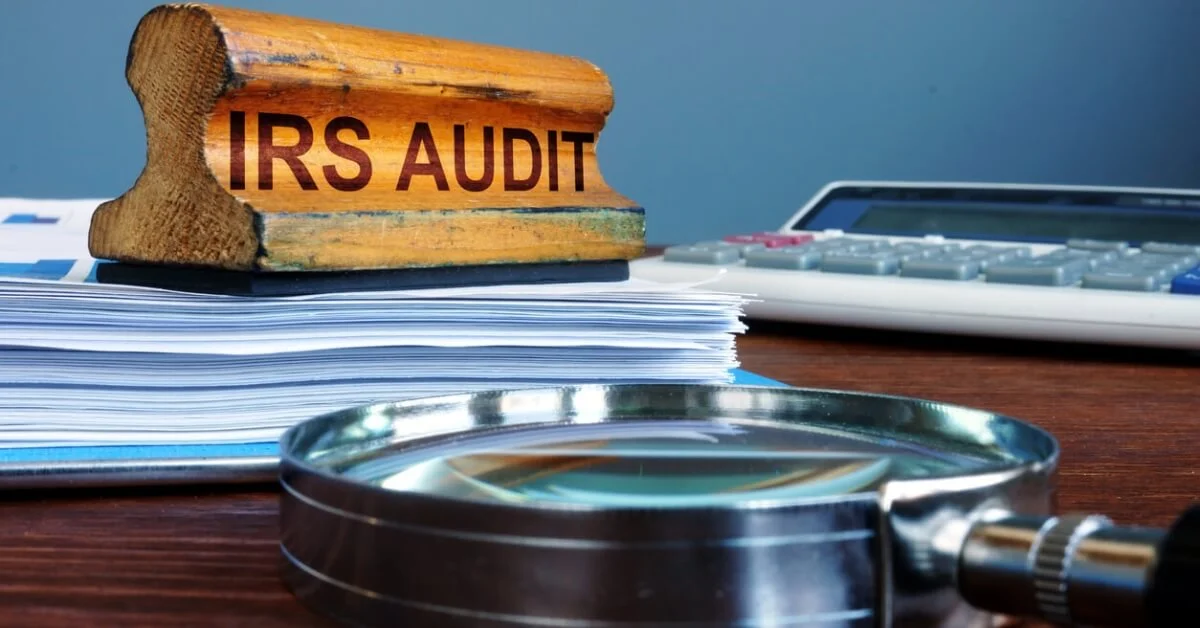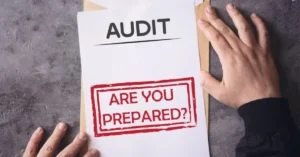Did You Receive an IRS Audit Letter?
Read on to found out exactly what you can expect.
One of the most dreaded moments that is feared by Americans of all walks of life is the IRS audit. For ages now, the IRS has been auditing some 1% of its tax returns.
This is about a million tax returns from a total of 150 million returns. However, people never seem to get used to it.
An IRS audit does not mean that its time to flee the country and start a new life in Mexico. On the other end of the spectrum, it is a normal process that millions of average Americans undergo yearly.
So, if your name lands on the IRS Audit Department, expect the following from the IRS throughout the audit process.
The IRS Will Contact You
For the IRS to audit you, they have to inform you first. The IRS will inform you of the impending audit through mail. The IRS neither calls people to give audit requests nor sends e-mails.
Like all mail you have ever pulled out of your mailbox, it will be a neatly written request. The written appeal will contain:
-
- Why you caught the attention of the IRS
-
- The local IRS office that sent you the audit
-
- A fax number to fax your documents to
-
- The deadline by which you should be ready for audit
-
- A number to call for any inquiries.
-
- General Instructions about the audit
The IRS Will Give You Time
The IRS gives you enough time from the moment you read the mail to when they expect you to be ready for audit. They give you wriggle room to prepare adequately for the audit and to get all the required documents.
However, if, for one reason or another, you can’t make their deadline, they give you an option to call and ask for an extension or rescheduling. The extension the IRS gives is a one-time 30-Day period to prepare yourself and put your documents in order.
During the Actual Audit
The IRS will audit you in three ways, each depending on how seriously the IRS wants to vet your tax return. These are:
-
- Mail Audit
-
- The Office Audit
-
- The Field Audit
When the IRS Conducts a Correspondence Audit
Most Americans are likely to go beyond this point, as far as audits are concerned. A mail audit is the simplest form of an audit. Mail audits make up 80% of all audits given by the IRS.
In a correspondence audit, the IRS only needs you to mail in the required documents associated with your previous returns. You can fax all the necessary documents to a fax number included in the IRS letter. Mailing them to the IRS address is also a popular option.
The list of the documents that the IRS requires you to present for the audit will be mailed to you within time for you to start preparing.
Some of the documents that you may be asked to mail into the IRS include:
-
- Your Mortgage Statements
-
- Receipts of your various packages
-
- Brokerage forms
-
- Accounts of your retirement plans
When the IRS Conducts an Office Examination Audit on You
In this type of audit, the IRS requires you to show up at their designated offices. In this audit, you may have to sit across a table with an IRS officer and answer a few questions about your taxes.
If you feel that you may not be prepared enough at that time or that you have a prior commitment, the IRS will let you call the examiner and request a reschedule.
Expect field audits to be more thorough than the correspondence audits mentioned above. The questions asked by the IRS experts here will not cover documentation alone, but they may look into your:
-
- Income
-
- Lifestyle
-
- Bank Records
-
- Charity
Most tax evasion cases begin at this level. However, this is no cause for worry as the IRS prosecutes only about 3000 cases yearly. The IRS prefers to use its clout to chase after more serious offenders.
You Can Also Expect a Field Audit From the IRS
A field audit is the most thorough of the three types. There is a very high chance that you will never get to this point. The IRS prefers using this audit for those with severe tax issues.
In a field audit, just like the office audit, you will be sitting across from an IRS agent; but in your own home. The IRS will send an agent to your home to go through your tax returns and bank statements.
You may have to undergo uncomfortable conversations about your
-
- Lifestyle
-
- Spending
-
- Bank deposits
Another option that may lead to a field audit is if you have too many books or documents to mail in. If this is the case, you may request a field audit.
How the IRS Concludes an Audit
At the tail end of the process, the IRS concludes your audit in three ways. These are:
-
- No Change: This is where you meet all the IRS requirements, and they propose no change to your tax returns.
-
- Agreed: This is where you fall short on some IRS requirements and agree to the change in your tax returns.
-
- Disagreed: This is where you fall short on some IRS requirements and dissent to the proposed changes in your tax returns.
What Happens If You Agree?
If you agree to the proposed changes in your tax requirements, The IRS will ask you to sign an examination report or some other form depending on the type of audit.
If you may need to reimburse the IRS, several payment options are available.
What Happens If You Don’t Agree?
If you don’t agree with the proposed changes, you may have to sit on another table across the IRS manager. Other options on the table are Mediation or appeal if there is still enough time left on the statute of limitations.
The Key Take-Away
As we have seen above, an IRS audit is not as complicated as many people believe. With Silver Tax Group, it will be over in no time, and you will be back to your normal life.
For any inquiries about your taxes and the IRS, contact us today and let us see you through.





